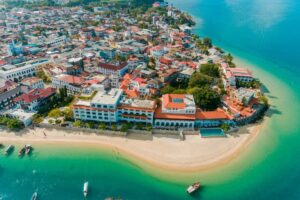Tanzania’s system for issuing certificates and transcripts to graduates needs reform. In Tanzania, when students graduate high school or college, they are not given their certificates (diplomas) immediately.
Instead, they are supposed to travel back to the schools and colleges from which they graduated, months or years later, at their own expense, to collect them. For example, my nephew who lives in Arusha had to travel to Iringa where he went to school to collect his diploma. Schools can and must do better for their graduates.
As someone who has worked in higher education for over 30 years and has children who have graduated high school and college, I find it very difficult to understand why the current system has remained unchanged for so long. Unlike concerns surrounding curricula or the old-fashioned, rigid system of students being assigned “combinations” based on national exams, this issue is rather straightforward.
Instituting an efficient system for handling the issuance of certificates to graduates does not require a heated and protracted debate in Parliament. This is honestly just a matter of the Ministry of Education being cognizant of the challenge the current system creates for students and their families and having the will to make some changes.
If the examination process and timeline is such that diplomas and transcripts cannot be handed out to graduates when they graduate, before they leave school, it should be the responsibility of schools and colleges to mail them to the recipients, in a secure way.
For example, they could be mailed to respective district education offices where graduates could go pick them up easily as it would be close to their homes. That process should be clearly communicated to the students.
If it is hard to appreciate the burden that the current system imposes on students, the following will help. A number of lecturers and professors at colleges and universities in Tanzania did some of their studies abroad.
What would be their reaction if the college and university they attended abroad told them, when they graduated, that they would need to go back a few months later to get their official graduating papers – that they would have to make their own arrangements to get visas, return tickets, and accommodation?
And, by the way, there is no guarantee that the day they get to the registrar’s office, their diplomas will actually be available for pick up. In other words, they may not be able to plan how many days they will need to spend abroad when they go back just to get their diplomas.
This example seems completely farfetched. It is not. This is exactly the predicament of many graduates in Tanzania. There are students who have not been able to get their diplomas and transcripts because they cannot afford to travel back to the schools from which they graduated.
Apparently, some employers and colleges want to see a person’s diploma before the person can be considered for employment or further studies. This compounds the burden on graduates who are left helpless.
But this is not only a personal burden; it is also costly to the nation as a whole, unable to utilize fully its human resources.
By the way, in other countries, employers and colleges are not interested in seeing graduates’ diplomas. They are rather interested in their transcripts which spell out their academic performance for every subject they took.
Schools have systems where an applicant can request an official copy of their transcript to be sent directly to where they are applying. Technology has made this process very simple and efficient.
This technology is available in schools and colleges in Tanzania. They should use it and hand out diplomas in a more expedient and efficient way.















